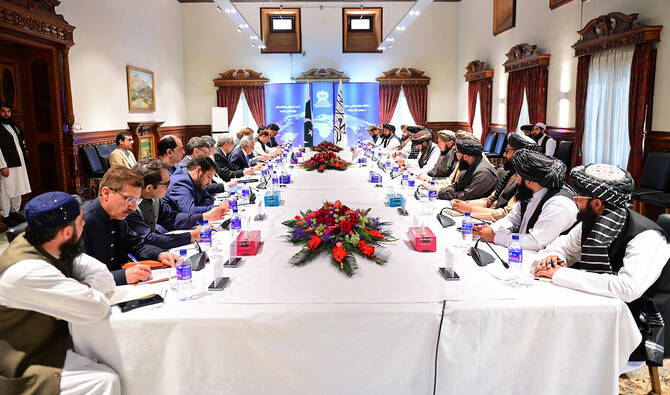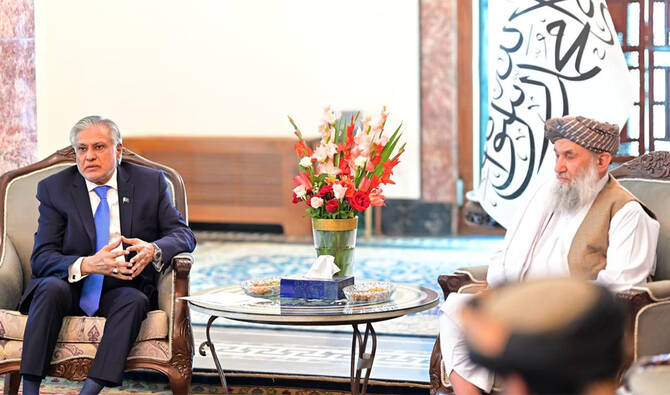KARACHI: The Prevention of Electronic Crimes Act (PECA) is being used as a “tool” by state authorities to suppress freedom of expression and target journalists, the Freedom Network, a Pakistani media and development sector watchdog, said on Tuesday.
The body released a data analysis for March 2025 documenting eight instances of threats against journalists, with three cases directly involving the contentious PECA legislation, according to the report compiled by the watchdog.
Enacted in 2016 and further tightened with amendments this January, PECA was drafted with the stated aim to combat cybercrimes such as hacking, online harassment, and data breaches. However, journalists, human rights advocates and media bodies have widely voiced concerns that state authorities are using the law’s broad provisions to silence dissenting voices and control digital platforms. Government officials have variously denied PECA is a censorship tool.
The Freedom Network’s report, based on data from its Pakistan Press Club Safety Hubs Network, which collaborates with major press clubs nationwide, highlights what it described as a “worrying” trend of legal actions, arrests, enforced disappearances, censorship, attacks on journalists’ residences, and physical assaults.
“The amended PECA law is proving as harmful for freedom of expression and journalism as the coronavirus was for human beings,” Iqbal Khattak, Executive Director of the Freedom Network, told Arab News. “It is a tool given in the hands of state authorities to question any post, any report and any expression.”
Among the highlighted cases registered under PECA is the arrest of Karachi-based journalist Farhan Malik, the founder of the Raftar online news channel. Malik was arrested by the Federal Investigation Agency (FIA) Cyber Crime Wing on Mar. 20 after being summoned for an inquiry and was subsequently charged under multiple sections of PECA and the Pakistan Penal Code for allegedly running programs and publishing content deemed to be “against state institutions.”
Malik was released on bail on Monday.
Another case involves Zahid Sharif, the administrator of the ZSR Digital Facebook page in Bhakkar, Punjab province. Sharif was charged under PECA and other laws after he posted a statement and images of a woman accusing local police of assault.
The Freedom Network report also details other forms of threats against journalists in March 2025 including the alleged enforced disappearance of journalist Asif Karim Khetran in the southwestern Balochistan province, the censorship of an interview critical of the military on The Centrum Media (TCM) platform, and anchorperson Paras Jehanzeb’s current affairs news show being put off air. The report also highlights the alleged abduction of investigative journalist Ahmad Noorani’s brothers in Islamabad after he published a controversial report about the Pakistan army chief’s family.
Information Minister Ataullah Tarar has defended the PECA bill, saying it would “not harm but protect working journalists.”
“This is the first time the government has defined what social media is,” he told reporters after the amended law was passed earlier this year.
“There is already a system in place for print and electronic media and complaints can be registered against them.”
Tarar said “working journalists” should not feel threatened by the bill, which had to be passed because the Federal Investigation Agency, previously responsible for handling cybercrime, “does not have the capacity to handle child pornography or AI deep fake cases.”
Tarar said the government was also aiming to bring social media journalists, including those operating YouTube accounts, under the tax framework.
The operative part of the new bill outlines that a newly established Social Media Protection and Regulatory Authority would have the power to issue directions to a social media platform for the removal or blocking of online content if it was against the ideology of Pakistan, incited the public to violate the law or take the law in own hands with a view to coerce, intimidate or terrorize the public, individuals, groups, communities, government officials and institutions, incited the public to cause damage to governmental or private property or coerced or intimidated the public and thereby prevented them from carrying on their lawful trade and disrupted civic life.
The authority can also crack down on anyone inciting hatred and contempt on a religious, sectarian or ethnic basis as well as against obscene or pornographic content and deep fakes.
Rights activists say the new bill is part of a widespread digital crackdown that includes a ban on X since February last year, restrictions on VPN use and the implementation of a national firewall.
The government says the measures are not aimed at censorship.






















